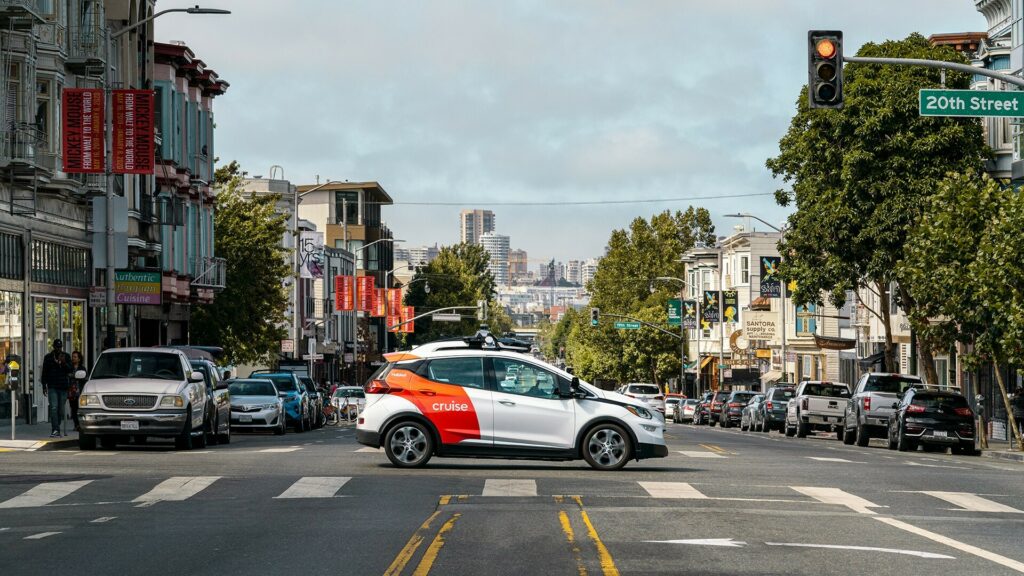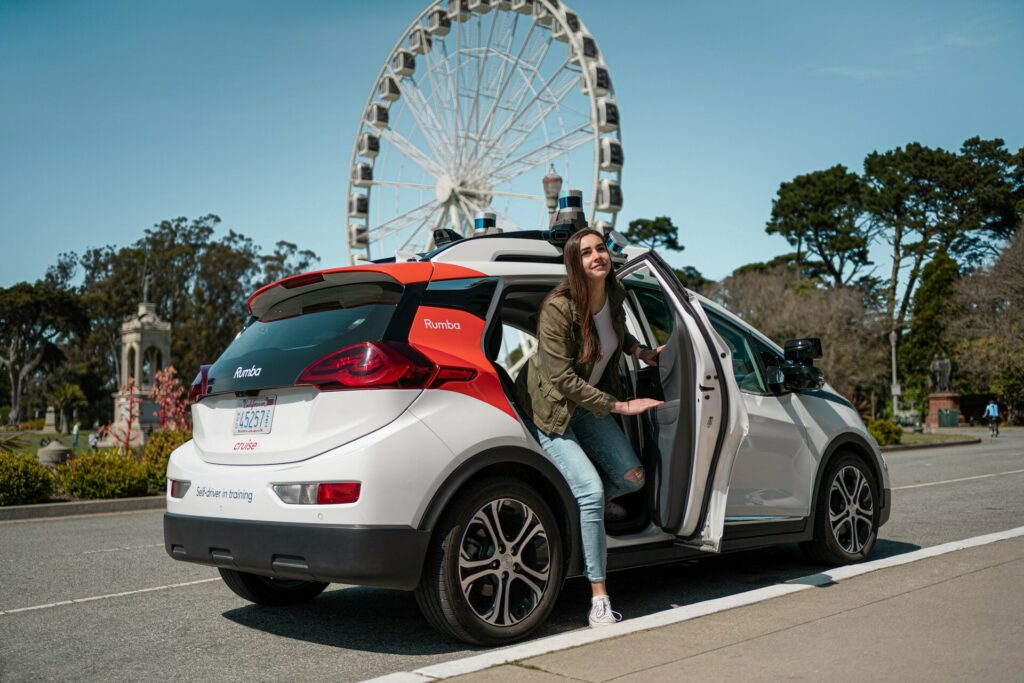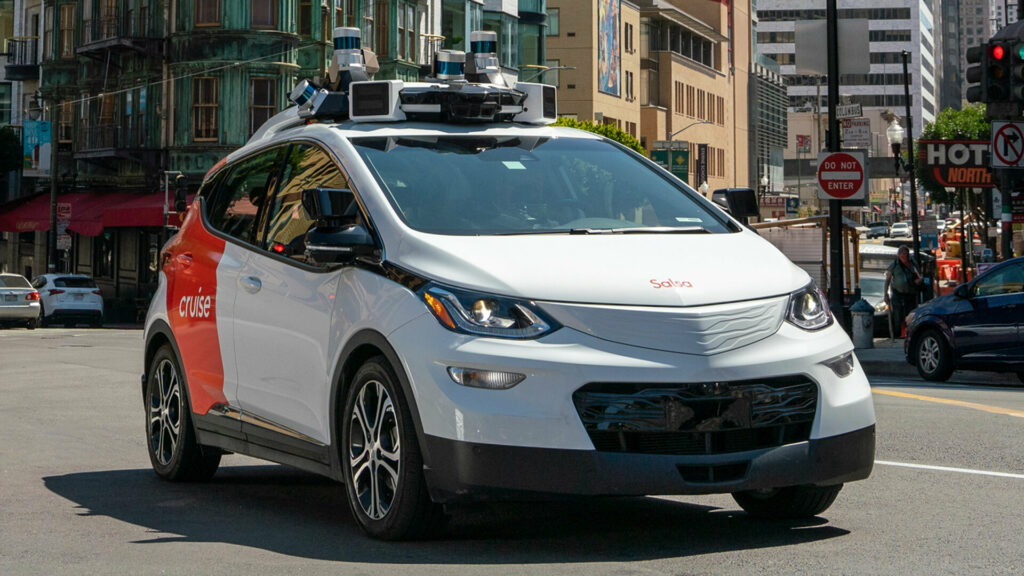- The technology company has introduced a software update to reduce the risk of hard braking maneuvers.
- NHTSA’s Office of Defects Investigation attributed 10 crashes to Cruise vehicles.
- Separate investigations into the company’s autonomous vehicles are ongoing.
The Cruise automotive car division operated by General Motors will recall 1,194 of its robotaxis, allowing the National Highway Traffic Safety Administration (NHTSA) to close an investigation into braking issues.
The safety agency launched an investigation into Cruise vehicles in December 2022 after analyzing 7,632 hard braking events recorded by the robotaxis. The Office of Defects Investigation concluded that 10 crashes could be attributed to Cruise vehicles. Of these, four involved a vulnerable road user and resulted in injury.
Read: Cruise Cans Origin Robotaxi Project, Will Focus On Next Chevy Bolt
While Cruise has denied the NHTSA’s assertion that a recall was required, it rolled out a software update to its fleet last month “intended to reduce the risk of unexpected braking maneuvers, including by improvements to perception, prediction, and planning.” It has also provided the agency with data that shows unexpected braking events involving its robotaxis occur less frequently than vehicles with a human driver in control, The Verge reports.
It appears the company’s fleet of autonomous vehicles could inaccurately predict the path of a car ahead. Hard braking events could also be triggered if a vehicle got too close to the sensors of one of the robotaxis.

Cruise still has plenty on its plate. Investigations from the Justice Department and the Securities and Exchange Commission are ongoing after a Cruise vehicle struck a pedestrian in October 2023 and dragged her along the pavement for 20 feet (6 meters). This investigation, as well as ongoing “regulatory uncertainty,” recently prompted the firm to cancel plans to build a purpose-built robotaxi with no steering wheel or pedals known as the Origin.
GM unveiled the innovative Cruise Origin in early 2020 and it was going to serve as the flagship vehicle for the brand’s robotaxi service throughout the United States. Now, Cruise will focus on making self-driving versions of the next-generation Chevrolet Bolt which is scheduled to hit the market next year.




